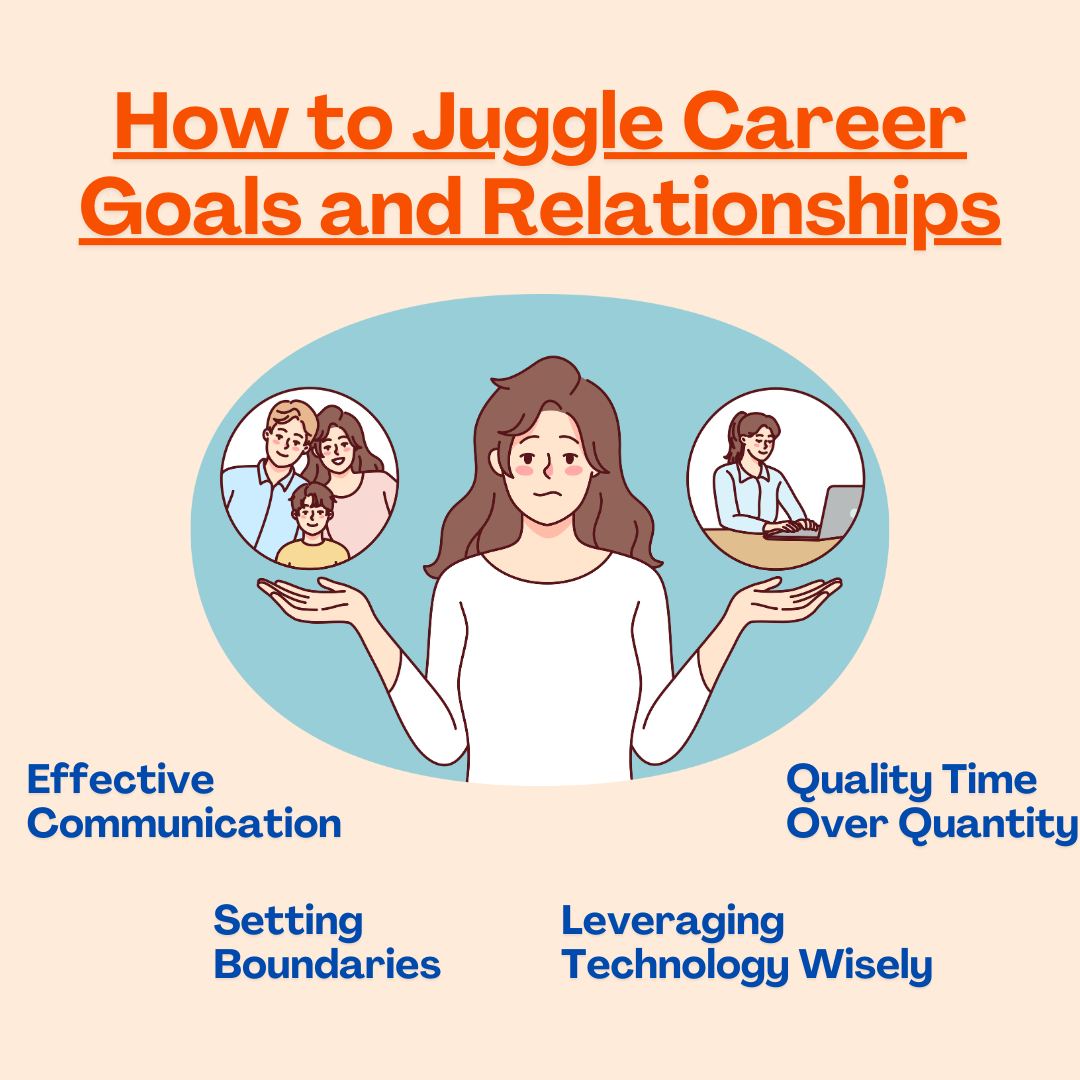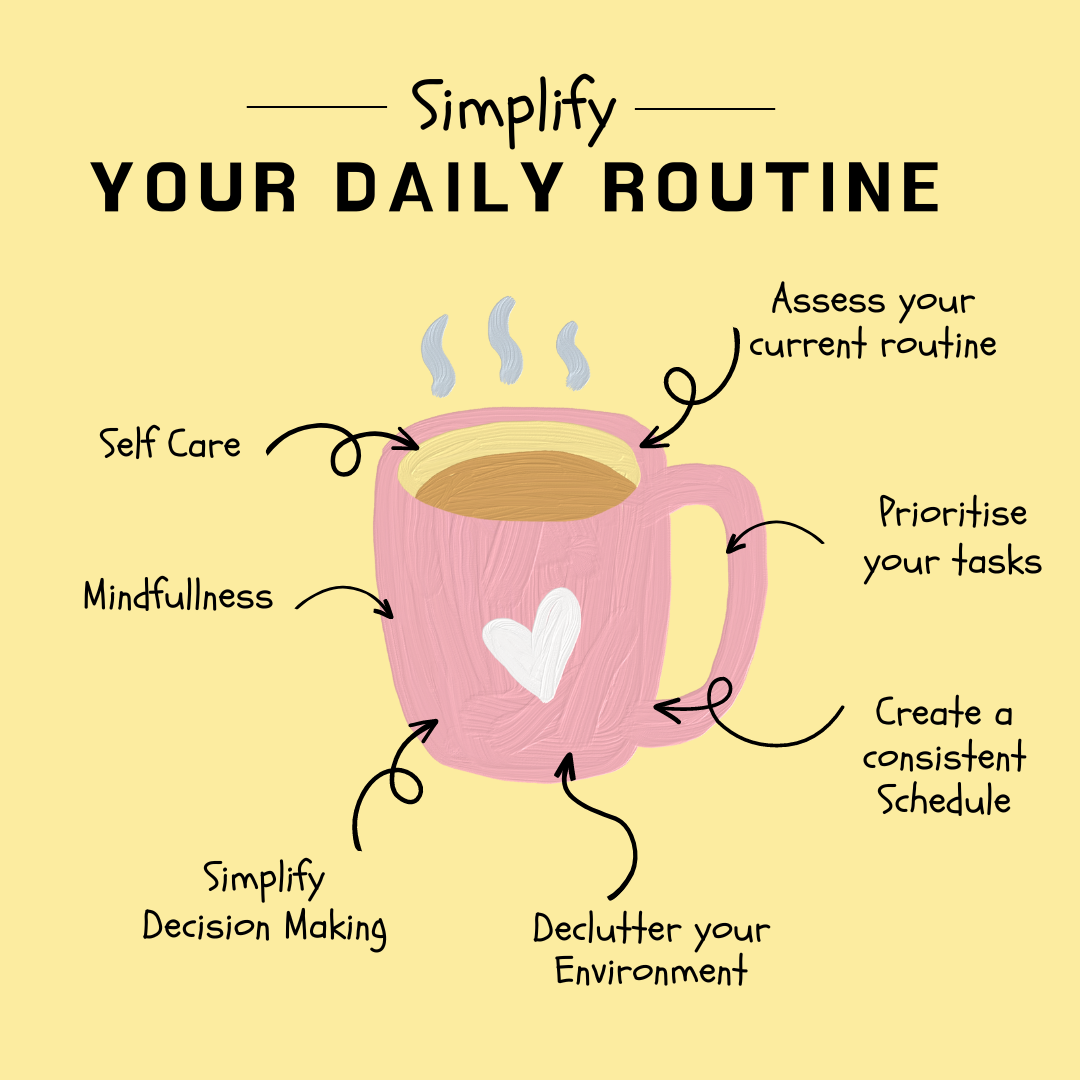In today’s fast-paced world, balancing career goals with personal relationships is challenging. Professionals often struggle to nurture relationships while climbing the career ladder. To achieve this balance, setting clear boundaries between work and personal life is crucial. Prioritizing time with loved ones and scheduling regular check-ins can help maintain strong relationships. Effective communication with partners and colleagues about expectations and availability is also important. Real-life examples show that professionals who manage their time well often maintain healthier relationships. Scientific studies suggest that work-life balance improves overall well-being and job satisfaction. By organizing their schedules and focusing on quality time, individuals can pursue career aspirations while keeping personal connections strong. Balancing these aspects of life requires effort, but it leads to greater fulfillment and stability in both career and personal realms.
Understanding the Challenge
Balancing career and relationships is tough due to the demands of both. Careers often require long hours, travel, and high stress, which can strain personal relationships. Research supports this idea: a study in the Journal of Applied Psychology found that work demands often lead to relationship problems (Roehling, 2001). This is especially true in high-pressure jobs, where the focus on career success can overshadow personal life.
Strategies for Maintaining Relationships
1. Effective Communication
One of the most crucial aspects of maintaining relationships while pursuing career goals is communication. Open and honest dialogue about career demands and personal needs can help manage expectations and prevent misunderstandings. A study published in Communication Research underscores that effective communication is linked to higher relationship satisfaction and lower stress levels (Canary & Dainton, 2003).
Emily and Mark
Emily, a marketing executive, and Mark, a freelance graphic designer, struggled with their relationship because of their busy jobs. Emily frequently worked late nights and weekends, leaving her little time for Mark. To tackle this, they started having weekly “relationship check-ins.” During these meetings, they talked about their schedules, upcoming commitments, and how they could support each other. This routine helped them coordinate their plans and address any feelings of neglect. By setting aside time for these conversations, they were able to better manage their work-life balance and improve their relationship.
2. Setting Boundaries
Establishing clear boundaries between work and personal life is essential. This means not only defining specific work hours but also creating physical and psychological spaces where work does not intrude. A study published in the Journal of Occupational Health Psychology highlights that boundary management can significantly reduce work-family conflict and enhance overall well-being (Clark, 2000).
Sarah’s Job Redesign
Sarah, a senior manager at a tech company, was burning out from constant email notifications and working after hours. She realized this was affecting her relationship with her partner. To fix this, Sarah set strict boundaries: no work emails after 7 PM and weekends were dedicated to personal time. This change helped her focus more on her relationship and also boosted her job satisfaction and productivity. By managing her work boundaries, Sarah found a better balance between her career and personal life.
3. Quality Time Over Quantity
When time is limited, focusing on the quality of interactions can greatly impact relationships. Research from the Journal of Marriage and Family shows that couples who participate in meaningful activities together report higher relationship satisfaction (Aron et al., 2000). By prioritizing quality over quantity in their time together, couples can strengthen their connection and improve their overall relationship happiness.
John and Maria’s Weekend Ritual
John, a finance executive, and Maria, a school teacher, both had demanding jobs that made it hard to spend time together. To improve their connection, they started a weekend ritual where they enjoyed a shared hobby, like hiking or cooking. This focus on quality time helped them make the most of their limited moments together. By engaging in activities they both enjoyed, they strengthened their bond and felt more connected despite their busy schedules. Their new routine made their relationship more fulfilling and helped them maintain a strong connection even with their hectic lives.
4. Leveraging Technology Wisely
Technology can be both a blessing and a curse in maintaining relationships. While it allows for constant communication, it can also blur the lines between work and personal time. According to research from the Journal of Applied Communication Research, the use of digital communication tools should be managed carefully to avoid exacerbating stress and relationship issues (Baxter & Braithwaite, 2008).
Alex and Priya’s Digital Detox
Alex, a tech startup founder, and Priya, a consultant, noticed that constant digital communication was harming their relationship. To address this, they adopted a “digital detox” policy. They turned off work notifications and set specific “no-device” times to focus on each other. This policy allowed them to reconnect and enjoy quality time without digital interruptions. By reducing their exposure to constant digital stress, they improved their relationship and found more balance in their lives. The approach helped them strengthen their connection and feel less overwhelmed by work-related distractions.
The Science Behind Balancing Career and Relationships
Balancing career and personal life involves more than just personal strategies; scientific research sheds light on key factors:
- Quality Time: Spending meaningful time together boosts relationship satisfaction and emotional well-being. Prioritizing quality interactions is more important than just being present (Huston & Melz, 2004).
- Work-Family Conflict: When work demands interfere with family life, it causes stress and relationship strain. Good boundary management and communication can help reduce these conflicts (Greenhaus & Beutell, 1985).
- Stress and Relationship Quality: High work-related stress can harm relationships. Using coping strategies and keeping communication open can improve relationship quality (Bakker & Demerouti, 2007).
Balancing career goals with maintaining meaningful relationships requires intentional effort and planning. Key strategies include effective communication, setting clear boundaries, focusing on quality time, and managing technology use. Real-life examples show that while this balance is challenging, it is achievable with thoughtful approaches and mutual understanding. By applying these strategies, individuals can better manage their professional and personal lives.
Success isn’t only about career achievements but also about the quality of our relationships. By integrating these approaches into our lives, we can achieve both career growth and strong personal connections, leading to a more fulfilling and balanced life.

